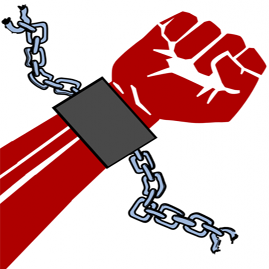| |
When one hurts or kills a women
one hurts or kills hummanity and is an antrocitie.
Gino d'Artali
and: My mother (1931-1997) always said to me <Mi
figlio, non esistono notizie <vecchie> perche puoi imparare qualcosa da
qualsiasi notizia.> Translated: <My son, there is no such thing as so
called 'old' news because you can learn something from any news.>
Gianna d'Artali
CLICK HERE ON HOW TO READ
ALL PARTS OF THIS SPECIAL
Atrocities against Indigenous
women and girls :
Women's Media Centre
2 Sep 2022
By Celeste Huang-Menders
<<50 Years Ago, an Indigenous Woman Was Vilified at the Oscars.
She Finally Got Her Apology.
At the 1973 Oscar Awards, 26-year-old Sacheen Littlefeather made
cinema history by walking on stage to decline the coveted Best Actor
award on behalf of Marlon Brando for his role in The Godfather. After
the actor Liv Ullmman declared Brando as the winner (beating out Michael
Caine, Laurence Olivier, Peter O’Toole, and Paul Winfield), a strong
male voice announced over the speakers: <Accepting the award for Marlon
Brando in the Godfather, Ms. Sacheen Littlefeather.> Littlefeather rose
from the audience as the melancholy soundtrack from The Godfather played
throughout the cavernous and elegant Dorothy Chandler Pavilion. The
ceremony was notably the first to be televised internationally via
satellite and an estimated 85 million viewers tuned in. In traditional
Native American dress with her long black hair parted down the middle,
Littlefeather's appearance was incongruous with the typical evening
gowns and tuxedos filling the venue as she walked to the stage. As she
ap-proached the podium, the actor Roger Moore leaned in to present the
golden Oscar statue to Littlefeather. Instead of taking hold of the
award, she held up her right hand and paused, signaling, <No.> And with
a simple gesture, Sacheen Littlefeather lit a fuse that would impact the
rest of her life. Roger Moore, momentarily unsure, looked at
Littlefeather and asked <No?> while shaking his head to mimic the
question. He and Ullman politely stepped aside to allow Littlefeather
the microphone. The applause quickly died down as the audience sensed
the confusion unfolding. <Hello, my name is Sacheen Littlefeather,> she
said. Her eyes scanned the audience in front of her, rapidly assessing
her surroundings. Watching the original footage on YouTube, a slight
sense of nervousness is visible in her eyebrows. Her voice is
soft-spoken but clear and firm. <I’m Apache and I am president of the
National Native American Affirmative Image Committee …> In a brief, yet
historic, 75-second plea, Littlefeather told the audience that Brando
was boycotting the ceremony and could not accept the award. <He very
regretfully cannot accept this very generous award and the reasons for
this being are the treatment of American Indians today by the film
industry and on television and on movie reruns,> she said, to both boos
and applause from the audience. Littlefeather also referenced the
then-recent Wounded Knee Occupation, during which proponents of the
American Indian Movement occupied the South Dakota town of Wounded Knee
to protest the continual mistreatment of Native Americans. She asked the
audience for sympathy and compassion for the cause, concluding with, <I
beg at this time that I have not intruded upon this evening, and that we
will in the future, our hearts and our understandings will meet with
love and generosity.> After her speech, John Wayne allegedly tried to
attack her offstage, but was held back by six security guards.
Littlefeather later said that she faced other personal and professional
attacks, including the federal government dissuading any productions
that put her on air after her speech brought renewed attention to
Wounded Knee, which the FBI had imposed a media blackout over. Later
that week, when Littlefeather visited Brando's house, bullets were fired
into the front door as she stood nearby. Recently, however, the Academy
tried to make things right. In June 2022, the then-Academy President,
David Rubin, sent Littlefeather a letter, privately presented to her by
Academy Museum Director Jacqueline Stewart, apologizing for the
treatment she faced nearly 50 years ago. <For too long the courage you
showed has been unacknowledged,> he wrote. <For this, we offer both our
deepest apologies and our sincere admiration.> In the letter, Rubin also
wrote, <Today, nearly 50 years later, and with the guidance of the
Academy's Indigenous Alliance, [the Academy is] firm in our com-mitment
to ensuring indigenous voices—the original storytellers—are visible,
respected contributors to the global film community. Unfor-tunately, the
much-delayed apology did little to help Littlefeather, whose career was
affected by the incident. According to IMDb, the Internet Movie
Database, Littlefeather was credited with two acting roles in 1973,
followed by a scant five roles over the next five years. Her last
credited role (as <Navajo Woman>) was in the 1978 Western called Shoot
the Sun Down. Littlefeather continued her work in activism and became a
founding member of the Red Earth Indian Theater Company in Seattle,
advised in PBS's 1984 Dance in America: Song For Dead Warriors, which
received an Emmy award, and appeared in the 2009 Peabody Award-winning
film Reel Injun to discuss her experience at the 45th Oscars.>>
Read more here:
https://womensmediacenter.com/fbomb/50-years-ago-an-indigenous-woman-was-vilified-at-the-oscars-she-finally-got-her-apology
|

